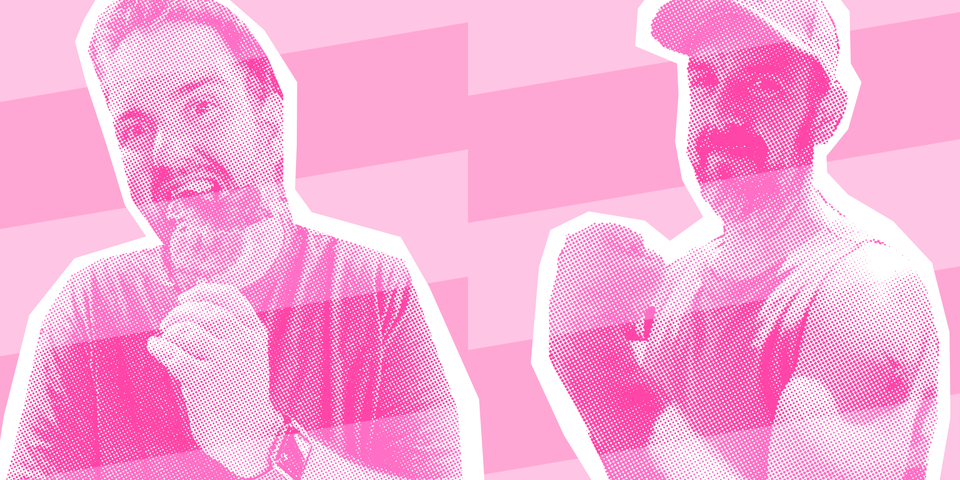Change is hard. Change is good.

At the end of 2019, I was met with a health scare that triggered big changes in my life. I went into 2020 with a scary challenge ahead of me: how could I figure out what triggered my diverticulitis so I never ended up in the hospital with it again? And, more importantly, how was I going to beat prediabetes? Needless to say, things got real very fast.
I had to make changes. Some of those changes were thrust upon me; others were decisions I made to become a healthier, happier me. I'm still a work in progress, but after losing about 90 lbs, I can tell you a thing or two about the changes I made and why.
This is part of my story, one that I hope someone finds helpful. It's not a guide, tip, opinion, or article about my work, which you usually find on my website. I'm trying something new. Get vulnerable with me.
Change in diet
Leaving the hospital overweight, depressed, and hungry, I knew that the only way I was going to defeat my diagnosis was to change my relationship with food completely. Honestly, this change was a lot less difficult than you might think. When you have another stay in the hospital, or a life of injecting myself with insulin, or worse, an eventual colostomy bag constantly on your mind, it makes the change a little easier. I started to look at some food as evil, knowing it would hurt me if I ate it.
I changed my diet several times to figure out what was triggeringmy discomfort while doing what I could to keep my blood sugar healthy. I cut out carbs and processed foods, right-sized my portions, and found alternatives to sweets. God, I missed Ben & Jerry's. I was making progress despite the COVID quarantine, with everyone at home baking, cooking, and drinking. It was too hard to resist in the face of uncertainty and fear of what was happening in the world. So... flare-ups happened, and I gave up dairy. Things felt better after that, so I continued. I counted calories, and I started to see more progress. I was losing weight! Again, issues persisted, and I gave up meat cold turkey (see what I did there?), and magically, things got easier. Then, I decided that adult beverages were only for the weekend. I'll say that really helped to speed up the weight loss process. It's funny how, after 2 nights of drinks, the pounds come right back. So I drink a lot less on the weekends now, too. I've entered my lightweight era in many ways.
I make light of it all, but it has not been easy. Again, change is hard. I have days when I overindulge and when I don't eat enough. Overall, I am good. I am taking a healthy approach to eating, and I'm not at all unhappy. I'm figuring out a lot of things, especially the parts that have affected me mentally and emotionally. I'm on the right track. I feel great and look great, if I do say so myself! I've also let Ben & Jerry's back into my life; I just eat a normal portion of the non-dairy flavors instead of a pint of Milk & Cookies a couple of nights a week.
Change in fitness routines
I was always a big guy. I played sports growing up: baseball, soccer, and basketball mostly. I had a very short stint in football--that was not for me. I was never an athlete, but I liked to be active. Once I hit my sophomore year of high school, I lost all confidence and stopped playing sports. I wasn't physically active from 16 to 21 when I joined a company basketball team. I was out of shape and embarrassed, so I avoided it more than participating.
As a young adult, I joined gyms to get in shape. I'd go for a few months, then stop. When I did go, I was so self-conscious about what I was doing, what I looked like, and what other people were thinking about me. I went through that cycle of doom at least three times at three different gyms over about five years. Ask me about when my Discman (you know my age, shut it!) slid out of my hands on the treadmill and was catapulted behind me.
When I got married (27), Emily asked me to go for a run with her. The idea of running terrified me, but she motivated me enough to try. We lived in Philadelphia at the time, so we walked out our front door and took off. I couldn't keep up with her (and still can't), and I felt like a giant prancing and storming down the busy sidewalks. I never went again.
The game changer
About a month before I went into the hospital, we bought a Peloton bike. Maybe doing something from home, with interaction and music, would work for me. It did, and it changed the way I felt about working out. It's fun, engaging, motivating, and competitive. I couldn't believe I was loving workouts! I was inspired to do more.
While I was climbing the leaderboard on the bike, COVID brought the desire, the need, to get outside. I started with long walks. Then, I walked faster and laughed at myself while doing it because I definitely looked like a speed walker. Then, one day, I told myself I should run from one lamppost to the next to see if I could do it. A few months later, I ran my first 5k.
COVID forced my family outside a lot. We camped, we biked, we hiked. And hiked. And hiked. It became a thing. We visited several national parks, found the best trails, and had adventures. We were changed people. The city folks became outdoorsy (well, the parents did, but the jury is still out on the teenagers). Last summer, Emily and I hiked the Tour du Mont Blanc. 10 days, 120 miles. Again, fat me is dead. As is indoors me. I love being outside, and my interest in sitting on the couch has dwindled.
It comes down to the fact that I changed how I looked at fitness. At first, it was to save myself. It was out of fear. But I found things I actually liked to do. I built routines for myself and got excited to make progress and become a fit person. Of course, there are days when my motivation is low, and I take the easy way out or even skip a workout. And that's fine. It's all about balance. And apparently, pushups. Check my arms next time you see me, bro.
Change in outlook
I can't tell you how many times I'd lay awake at night as a fat person thinking, "Tomorrow is the day the diet starts," and I'd wake up the next morning and never follow through. I'd make excuses for myself to myself. I had to get out of my way, but I didn't know how. Losing close to 100 pounds feels insurmountable when your life is busy and time is hard to find. It was time to reframe my thinking about my life and reprioritize some things to make a positive, healthy change for my physical and mental health.
The first change was to reframe the challenge as a positive. I started in a "survival mode" mentality, which quickly became unhealthy. Operating from a place of fear was stifling my true potential. As time passed, I made progress, and things in my life changed, too.
Typing it isn't very comfortable, and I've said it aloud a few times to laughter, but I'm putting it in writing: I started to see myself as an athlete, which gave me more confidence. I'm still trying not to cringe. But I'd be pedaling my ass off on the Peloton, climbing the leaderboard, killing power zone challenges, with coaches telling me I was an athlete. I embraced it, and it helped. Telling yourself you're something that you'd never think you could be is empowering. Especially when you believe it (or at least partially believe it).
The most significant change I made was being okay with prioritizing myself when I needed to. It's a hard thing to do when you're a family man with a job that requires 2-3 trips a month. Again, COVID helped to bring some perspective (and free time) to my life. No travel and quarantine meant there was time to focus on me and my family. What was important became crystal clear.
Then, there were changes in the people around me. During that time, I had my heart broken by the loss of a close friendship and the loss of a family member to cancer during COVID. There were no real goodbyes, and it still hurts. I was forced to mourn things I wasn't ready for or agree with, and it made me think a lot about what's important to me and what I value in my relationships. That trickled out to other areas of my life, and I've landed in a place that feels healthier and more trustworthy to people who deserve it.
My outlook on life and my role in this world constantly shift. I've always been more of an observer and a learner who feared extroversion because I feared misspeaking, sounding dumb, or making a mistake. I'm embracing messiness to a degree. I'm leaning toward being more creative and experimenting with things at work. I've become more comfortable voicing my opinion and knowing I'm good at what I do. I can give sound advice, deliver difficult news or feedback, and make people feel okay about it. I can solve problems with composure. I have confidence in and love for my work in a way I never have. And I've always loved my work. Okay maybe not always. I'm looking at you, university job with a lazy, terrible manager.
Most of all, I can speak up for myself and not care if you care. Writing this blog post is an exercise in saying "fuck it, be you." It's working for me right now. The days of people-pleasing are in my rearview mirror. The new me is still finding his new voice, but the confidence is there in a way it never has been. Again, change is hard, but change is good.
What change is next?
Things are changing every day for me. I'll continue to adapt and grow into the person I'm meant to be. I'm only 47; there's time for that.
One thing I'm already to change is the way I've hidden my story. This blog post is the first in a series in which I'll share more about my weight loss journey. Again, what I write in this vein will mostly be diary-like. They're not going to be polished, professional articles. I need a space to be myself, write how I want, and be real about the ups and downs I've experienced, hoping it will resonate with others.
If you have read this and can relate to it, please get in touch; others.


Member discussion